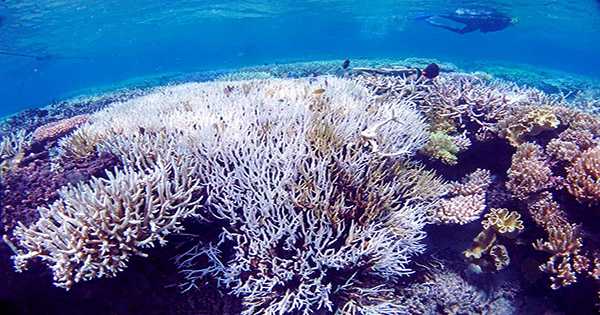As the Great Barrier Reef continues to suffer the devastating effects of climate change, researchers have discovered that certain types of friendly bacteria help keep corals healthy during times of stress and may provide the key to preserving some aquatic ecosystems in the face of rising sea temperatures. Scientists have “for the first time been able to prove in a laboratory setting that feeding corals beneficial probiotics increase their overall health and improves their chances of survival during heat stress,” said a statement from the Great Barrier Reef Foundation.
The discovery was made by an international team of researchers who treated a wide variety of species with a variety of beneficial microorganisms, known as The Biosphere 2 and Hawaii in Arizona, the world’s largest artificial ocean. Lead scientist Professor Raquel Peixoto said, “Corals receiving repeated probiotics were in better health than those who did not.”
In recent years, the Great Barrier Reef has undergone a variety of bleaching incidents, including one in 2016 that wiped out nearly one-third of all reef corals. Urine occurs when sea temperatures rise when corals expel the colored algae inside them and this provides them with most of their energy. As a result, the sheets lose their rainbow color and turn white. While it is still possible to recover bleached corals, many die if they cannot recover their algal communities quickly enough.
Still, researchers are now optimistic that the increasing use of beneficial bacteria can protect reefs from temperature stress and prevent future mass bleaching incidents. Currently, lab-nurtured corals have a lower survival rate during transplants to natural fats, and scientists want to see if certain microorganisms fed in the lab get better rents after they go out to sea.
Comments on this study, that’s according to Anna Marsden, managing director of the Great Barrier Reef Foundation “People may be surprised to learn that just like us, corals rely on lots of good bacteria to help keep them healthy, and just like us, the balance between good and bad bacteria is often disturbed during times of stress.”
Researchers are continuing to experiment to determine which type of bacteria is most beneficial to different species of coral. This year’s bleaching event has first affected the northern, central, and southern regions of the Great Barrier Reef, before the need for such solutions is more urgently needed than ever before.
















